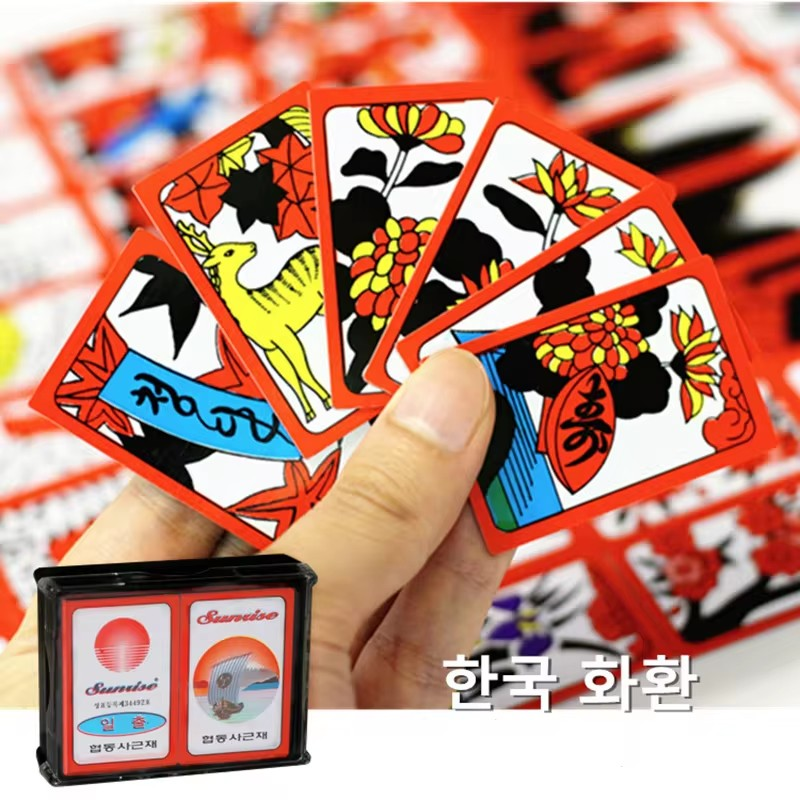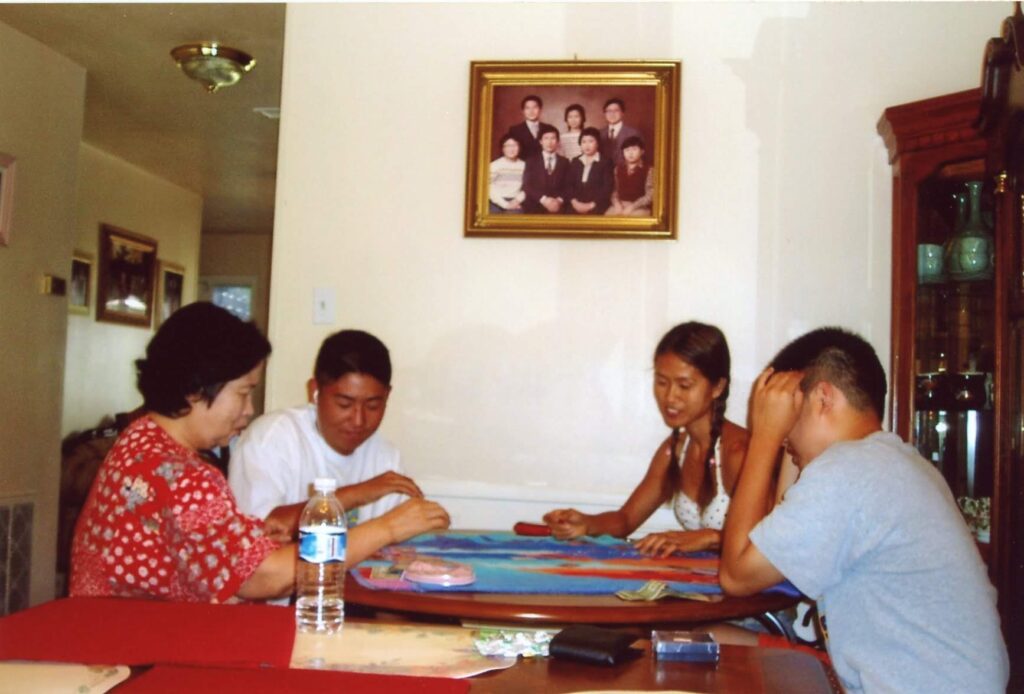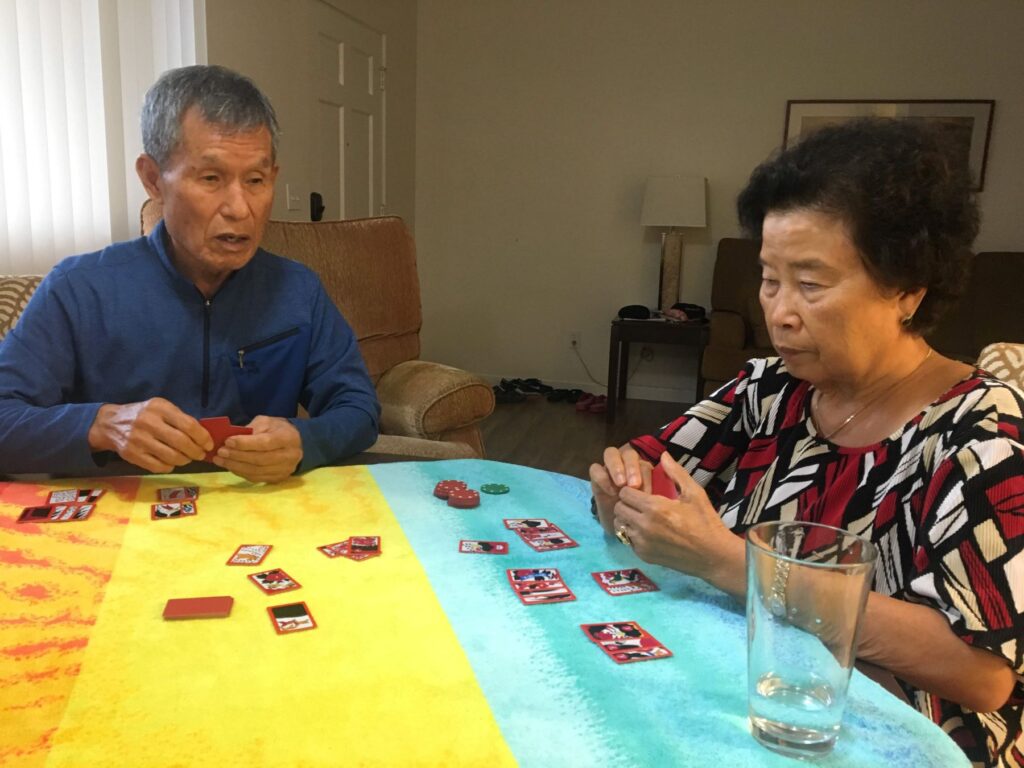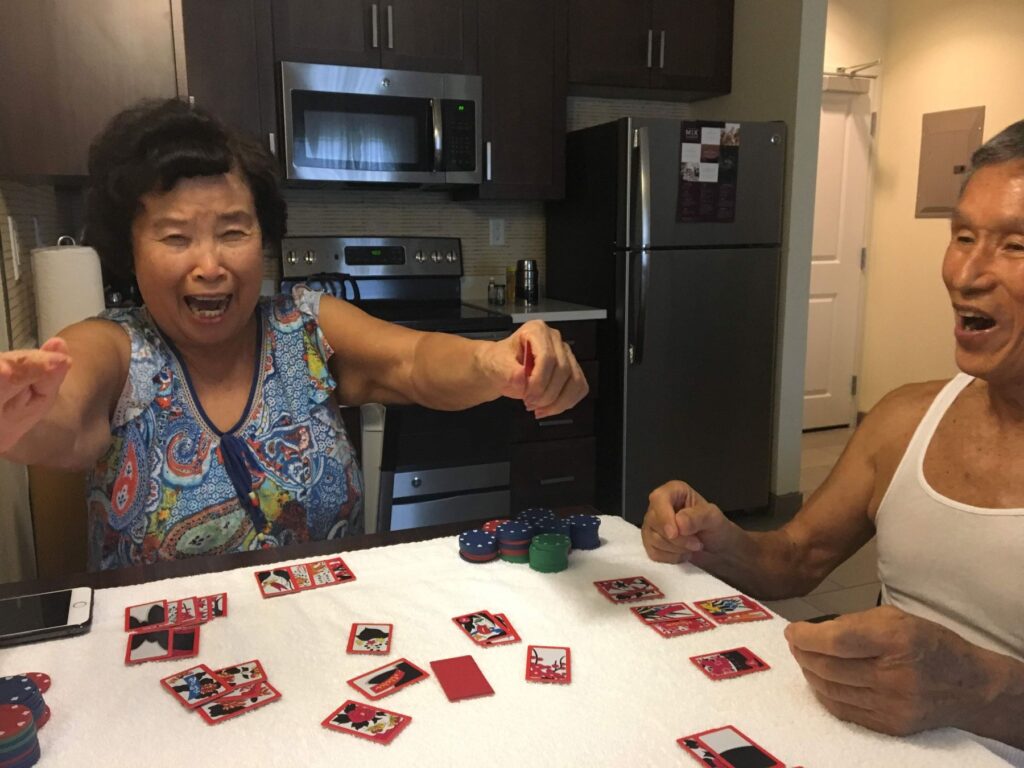Go Stop, a colorful and fun Korean card game, has been a cherished tradition in my family for generations. I first learned to play by watching my parents play with their family and friends. My mother, a lifelong fan, has been playing Go Stop with her mother and siblings ever since she can remember.
Now, I’ve passed down this exciting Korean card game to my own daughters, who enjoy teaching it to their friends. To this day, I still play this game with my parents, creating wonderful memories and strengthening our family bonds. In this blog, I’ll share the history of the Go Stop card game and how this vibrant game has created lasting connections in our family.
The History of Go Stop Card game

Go Stop, also known as Godori, is a fun and popular Korean card game. It is played with Hanafuda cards, which are small, thick cards featuring colorful and intricate designs. The game’s rich history dates back to the late 19th century when the Japanese introduced Hanafuda cards to Korea.
Origins in Japan
Hanafuda cards were developed in Japan during the Edo period as a response to gambling bans on traditional playing cards. The Japanese government outlawed Western-style playing cards in the 17th century, leading to the creation of various card games with different designs.
Hanafuda, meaning “flower cards,” emerged as one of the most popular and enduring card types. The cards feature twelve suits, each representing a different month of the year with flowers, plants, and animals.
Introduction to Korea
The Japanese introduced Hanafuda cards to Korea in the late 19th century during their occupation. The Korean version of the game evolved from Japanese Hanafuda games, adapting and creating unique rules and variations. Over time, Go Stop card game became distinctively Korean, blending traditional Korean culture and customs with the gameplay.
Development of Go Stop
Go Stop card game gained widespread popularity in Korea due to its simple rules, fun gameplay, and the social interaction it fosters. Traditionally played during holidays and family gatherings, it became a staple of Korean entertainment. The game is often played for small stakes, adding an element of excitement and competition.
The Game Today
Today, Go Stop is a fun, popular card game in Korea, enjoyed by people of all ages. It has also gained international recognition, with enthusiasts around the world learning and playing the game. The game continues to evolve, with digital versions available on smartphones and online platforms, making it accessible to a broader audience.
Cultural Significance
Go Stop is more than just a fun card game. It is a cultural artifact that reflects Korean traditions, values, and social interactions. The game is often associated with family bonding, friendly competition, and festive occasions, such as Korean New Year. Its vibrant and colorful cards add to the visual appeal, making it a joy to play and watch.
A Cherished Family Tradition

In my family, this fun Go Stop card game has been a cherished tradition passed down through generations. My mother learned the game from her mother when she was a young girl. She has fond memories of playing it with her siblings during family gatherings. The game was not just a pastime for them but a way to connect, share stories, and enjoy each other’s company.
Then, as I got older, I started playing with my friends. I remember sitting around with the colorful cards spread out, feeling a deep connection to my heritage and family history. The card game quickly became a favorite pastime of mine, combining strategy, luck, and the joy of spending time with loved ones.
Now, I play this beloved game with my own daughters. Teaching them how to play Go Stop has been a wonderful experience, filled with laughter and bonding. It’s heartwarming to see them grasp the rules and develop their own strategies, just as I did. They’ve even taught their friends how to play, spreading the love for this unique game beyond our family.
My Parents' Favorite Pastime: The Go Stop Card Game

Since my parents are getting older, close to their 90s, they rely on this card game to pass the time. Every night, like clockwork, they sit down to play. When I’m home, I join in to spend as much time with them as possible. Playing Go Stop card game has created countless memories for us over the years.
Whether it’s a quiet evening at home or a festive family gathering, the game always brings us together. It has strengthened our family bonds, providing a fun and meaningful way to connect across generations. Go Stop is more than just a fun card game in our family. It’s also a cherished tradition that carries our history, our stories, and our love.
For more on card games, check out my latest post on gambling to learn about the risks and discover how to stay safe while having fun.














